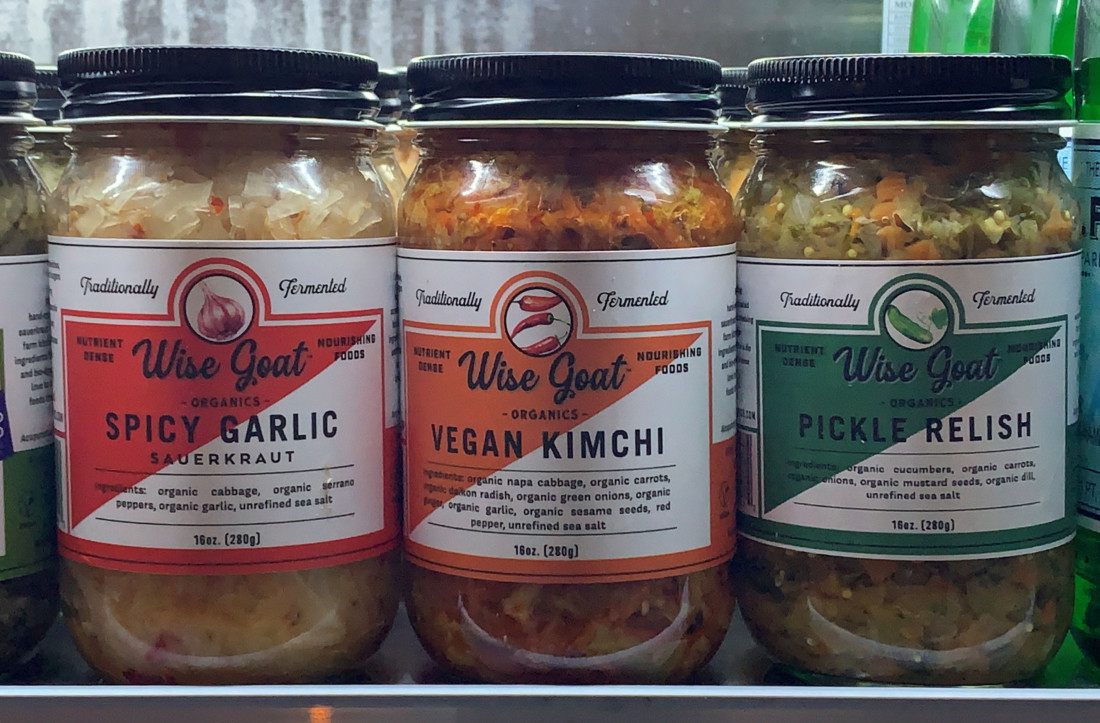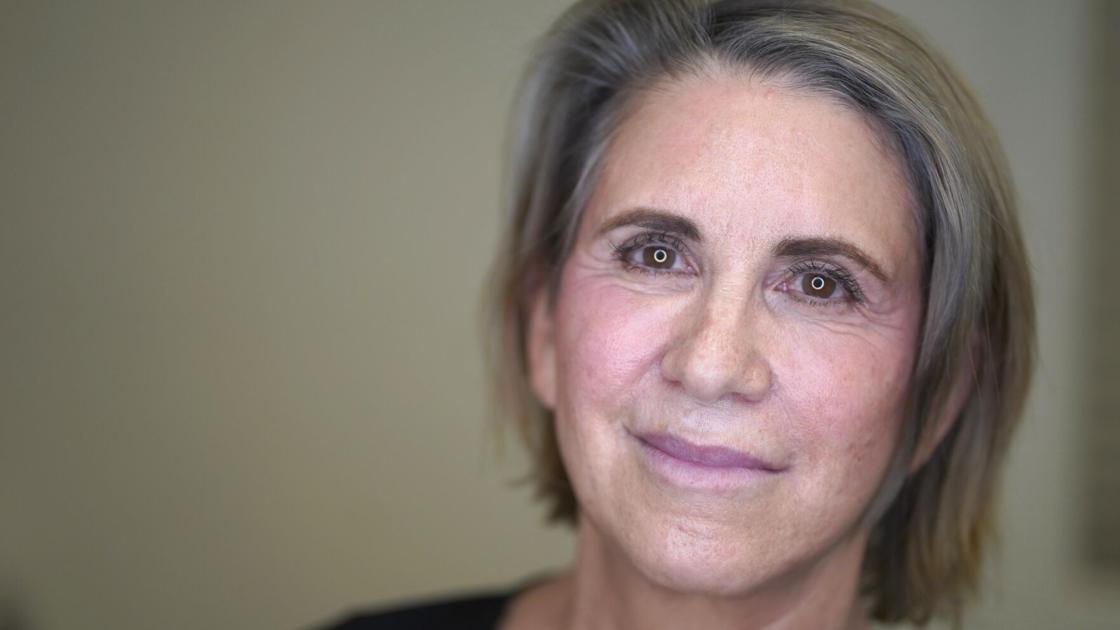 Credit rating: Jeff Rhode/Holy Title Professional medical Centre
Credit rating: Jeff Rhode/Holy Title Professional medical Centre Like one thing from science fiction, 2020 was upended by a minute, spike-crowned virus that distribute aggressively between folks, brought about unprecedented ailment and loss of life, and altered the way we do almost everything from celebrate holidays to vote for president.
Like one thing from science fiction, 2020 was upended by a minute, spike-crowned virus that distribute aggressively between folks, brought about unprecedented ailment and loss of life, and altered the way we do almost everything from celebrate holidays to vote for president.
The novel coronavirus put huge tension on all our community constructions, but the effects was notably profound for wellbeing treatment devices nationwide and in New Jersey, which was among the very first states to diagnose situations of COVID-19 — the illness brought on by the virus — and which remains among those toughest-hit by the pandemic.
Considering the fact that March 4, when New Jersey announced the initial verified situation of the ailment, much more than 467,600 condition citizens have been identified, which include practically 18,800 who have died as a outcome. Over-all, nearly 46,500 men and women have been hospitalized for COVID-19, which can take an outsize toll on Black and brown communities, and many struggled for months to fully get well.
By the time the coronavirus emerged in this article, Gov. Phil Murphy experienced shaped a task force that had been assembly for weeks below the leadership of point out well being commissioner Judy Persichilli, dubbed by Murphy “the lady who requirements no introduction” in what would sooner or later turn out to be daily media briefings. Murphy signed an govt get formally declaring a general public wellbeing emergency on March 9 and ten times later on began what would be a around-overall shutdown of the state’s corporations, educational institutions and civic areas. Only services considered necessary ended up permitted to stay open, below new restrictions. That government order has been extended each individual month due to the fact.
Why race and racism mattered
The effect of the coronavirus on communities of color was obvious by early April, as shortly as state officers began sharing demographic aspects of circumstances, but how this was connected to social determinants of health and fitness became more clear about time. Reports have proven that many years of racist community policy and economic tendencies had set Black and brown families, right here and across the nation, at bigger danger for an infection, hospitalization and loss of life than their white counterparts. These groups are extra likely to live in crowded, multigenerational households that let for straightforward distribute of the virus in communities that lack options for well being and wellness, and knowledge underlying disorders like asthma and diabetic issues at bigger charges.
Studies have also shown that Black and brown persons make up an outsize share of those people in frontline jobs, placing them at higher danger operating as food items servers, home care aides or public transit officials, careers that can not be performed from the basic safety of home. Overall, 4 in 10 frontline employees are men and women of coloration and 57% of bus motorists are Black, in accordance to the nonprofit Center for Financial and Coverage Research.
In addition, these people are considerably less very likely to have uncomplicated entry to COVID-19 screening and treatment if they are unwell, and may perhaps not be prioritized for new, far more efficient therapies with the exact same frequency as white people. These factors combine to go away Black and Hispanic citizens noticeably a lot more likely to agreement COVID-19 than white New Jerseyans, at minimum a few instances far more most likely to be hospitalized, and 2 times as most likely to die as a result, according to state info.
“No one particular is astonished by this. And if they are, they have not been spending consideration,” Dr. Denise Rodgers, a vice chancellor at Rutgers Biomedical and Overall health Sciences application and professor of spouse and children medicine and group overall health at Rutgers Robert Wooden Johnson Healthcare University, stated in April. “The truth is, COVID-19 could just come to be one more in a quite long checklist of conditions for which there are sizeable disparities in consequence by race and ethnicity.”
When community daily life had slowed to a crawl in March, the tempo quickened for many wellbeing care and hospital workers. Regardless of a gradual get started to testing for the illness in New Jersey as nationwide, diagnoses had been ticking up immediately and COVID-19 hospitalizations of extremely unwell clients growing exponentially clinicians stated they experienced never ever noticed men and women arrive with such little oxygen in their blood, a sign of seriously impaired lung function.
By April, Persichilli and her group were apprehensive that hospitals would run out of house for all the exceptionally ill COVID-19 individuals. Ideas have been released to stand up at least 3 industry health-related stations, working with a prevalent wartime approach to again up a strained civilian procedure. Other former hospitals have been repurposed to provide supplemental beds, if required.
Struggling with unthinkable choices
With COVID-19 hospitalizations spiraling upward, problems experienced started to emerge about the supply of significant means, specifically masks, robes, gloves and other individual protective devices, or PPE, a term People in america would occur to know properly. Nurses at some New Jersey hospitals and nursing properties were ringing alarm bells, scared their facility would before long run out of these low-cost but critical aspects, significantly of which was produced or sourced in China, which was also devastated by before bouts of the coronavirus.
 Credit: (Prosperous Hundley III, The Trentonian)
Credit: (Prosperous Hundley III, The Trentonian)Persichilli, a nurse who earlier ran a significant, multi-condition healthcare facility procedure, expressed shock that this was occurring in a country of this kind of bounty. The Division of Health worked with the State Police to obtain, buy and stockpile further assets a joint effort with the New Jersey Clinic Affiliation, which signifies the state’s 71 acute treatment web sites and other overall health care facilities, now permits the state to track the use and distribution statewide.
But PPE was only portion of the dilemma. A further issue soon emerged about a possible scarcity of ventilators, the mechanical breathing machines that were being a most important procedure for lots of COVID-19 clients early on. Medical center officers ended up apprehensive and the state empaneled an pro task drive to draw up a triage strategy to support health and fitness care vendors make a decision how to prioritize ventilator use, if a lack turned true. That never ever happened, officials insist, and the encouraged treatment has considering that shifted to favor other techniques over ventilators.
“When the useful resource is scarce, the objective is to help save the most life with the resources readily available,” Dr. Hannah Lipman, a gerontologist and director of the Center for Bioethics at Hackensack University Professional medical Heart, section of Hackensack Meridian Well being, informed NJ Highlight Information at the time. “When sources aren’t scarce, individuals two aims are not in tension.”
It shortly turned very clear that gear wasn’t the only challenge. As the virus distribute, well being care staff became ill or exposed, necessitating them to quarantine for two months just before they could return to work, if they had been balanced by then. This issue compounded, prompting an ever-rising scarcity of personnel — especially nursing workers and respiratory therapists. Attempts to call in retired nurses or trained volunteers delivered some extra palms, but sooner or later New Jersey officers known as in nurses from other states and arranged with clinical personnel from the U.S. armed service to help treatment for individuals in the limited time period. (Staffing shortages go on to be a worry, as hospitalizations are yet again growing, but with the pandemic impacting almost all states, reinforcements are now tricky to come across.)
Hospitalizations peaked in New Jersey on April 14, when additional than 8,000 COVID-19 clients had been in acute care facilities, just about a quarter requiring intensive treatment. (Predictive modeling implies the latest wave will peak someday in January, with much less hospitalizations than in the spring.) As the effect of the statewide shutdown — coupled with consistent reminders from well being officers to retain length, clean one’s arms and dress in a mask, a thing that experienced been a level of discussion early on — commenced to take outcome, the effects on hospitals started to decrease. In the conclude, the area hospitals and auxiliary web-sites, with area for virtually 1,000 persons entirely, would treat just over 500 patients right before closing in May possibly.
 Credit: (U.S. Air National Guard photo by Grasp Sgt. Matt Hecht)
Credit: (U.S. Air National Guard photo by Grasp Sgt. Matt Hecht)Warming weather and declining virus counts introduced some aid, and by mid-May possibly the Murphy administration took techniques towards reopening the state’s economic system and community spaces. At the same time, general public overall health leaders and the families of nursing house citizens were elevating the alarm about problems at the state’s 650-furthermore long-expression care services. In New Jersey and nationwide, these websites — with frail aged and medically fragile people today in near quarters — were an simple target for the virus. Practically 7,500 residents and team at these facilities have died of COVID-19, or 40% of the state’s total fatalities.
Establishments rally, flaws exposed
Though hospitals in New Jersey had been mainly celebrated for the severe actions they took to safeguard and help you save life — performing collectively to share PPE, ventilators and treatment tips, irrespective of extended-standing regional opposition — nursing properties have generally faced criticism for their response to the pandemic. Some extended-term care services, which includes at least 1 of the three point out-run veterans homes, reportedly unsuccessful to implement universal mask use or appropriately separate ill citizens from those who were perfectly, exacerbating the spread of COVID-19. Other people endured severe shortages of PPE and team, resulting in sub-par treatment, with inhabitants not getting meals or medicine on time and lying in soiled diapers for hours on conclude. Interaction with family members members also floor to a halt at some services, leaving cherished kinds — who have been unable to check out in human being — at a loss for information and facts.
By May perhaps, the scenario experienced arrived at these kinds of a important stage that the Murphy administration hired professionals from Manatt Health and fitness, who expended just about a month compiling a detailed report on New Jersey’s nursing properties, with short- and very long-time period tips to boost the response. The report, which charge $500,000, discovered a host of extensive-standing troubles at these services, like inadequate funding, lack of personnel and difficulties with an infection handle. Manatt’s tips prompted legislative hearings and numerous expenditures, a lot of of which Murphy has signed, and the governor has pledged to commit at the very least $10 million in federal money to improved these services.
As spring turned to summertime, the every day case depend kept declining and the impact on health and fitness treatment facilities ebbed, leading Murphy to acquire steps to reverse the statewide shut-down. Reopening continued all through the summer months and condition officers encouraged neighborhood school leaders to acquire measures so that little ones could securely return to school rooms in the tumble. But the development was tempered by new outbreaks — in the beginning linked to a couple of substantial-profile non-public parties — and then expanding viral unfold in the neighborhood. Murphy instituted new limitations on gatherings in mid-November and sooner or later begged persons to limit personal gatherings indoors and rethink strategies for the approaching holiday seasons.
“As the governor has mentioned, this will not be a standard Thanksgiving. With the alarming surge in our cases, we all will need to be vigilant and get all of the community health and fitness safeguards that aided us to limit the spread of the virus very last spring,” Persichilli claimed at that time. “Our life — and the lives of our beloved ones — count on it.”
Vaccines right here at previous
The controversial presidential election — unprecedented alone, with voting in New Jersey largely by mail — served as a diversion of kinds from the fight from the virus. And by Thanksgiving, the guarantee of a vaccine available hope to many below and outside of, even with widespread distrust for the system under which vaccines experienced been produced and ended up remaining accredited. By mid-December, federal officials had authorised for crisis use two very efficient vaccines from the drugmakers Pfizer and Moderna. Vaccinations for wellness treatment workers at danger for infection started on Dec. 15, at College Hospital in Newark immunizations at nursing residences started this week with 103-year-aged Mildred Clements at Roosevelt Treatment Center in Previous Bridge.
 Credit score: (Edwin J. Torres/ Governor’s Business office) (CC BY-NC 2.)
Credit score: (Edwin J. Torres/ Governor’s Business office) (CC BY-NC 2.)In accordance to the condition vaccination strategy, the priority, or 1a group, incorporates health and fitness care employees at hazard for an infection and inhabitants and staff at prolonged-expression treatment facilities — despite the fact that Persichilli conceded on Monday there was some confusion around who was coated in this category. As of Monday, a lot more than 46,000 people had been vaccinated in the condition.
The point out Section of Health is now performing to delineate who will be portion of 1b, the subsequent team to have access to vaccinations, which could start in the months to arrive. These vaccines will be administered at group clinics, county wellness departments, drugstores and six condition-run “mega sites” which Murphy has reported will be established up in the weeks and months to appear, based on vaccine availability, logistics and desire.
The governor shut his briefing on Monday this week with an additional warning to avoid massive gatherings on New Year’s Eve, imploring men and women to celebrate responsibly and get examined if anxious.
“We have a large amount to glimpse ahead to in the new 12 months, but it have to start off with our keeping targeted on the procedures that have gotten us by most of 2020: social distancing, sporting our encounter masks, washing our arms with soap and drinking water, utilizing typical sense — indicating if you have been uncovered, acquire on your own off the field. If you really do not experience properly, get you off the discipline,” Murphy stated. “But make no slip-up, far better days are in advance. Let’s make confident that we make it to individuals days collectively.”





More Stories
Few kidney patients can access palliative care or hospice. Why?
Elderly white Sonoma County citizens additional probable to die from COVID-19 than Latinos
Physicians battle Black Miamians’ problem above vaccine